How to take out garbage
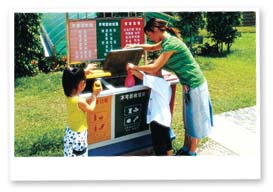 How to dispose of garbage varies depending on each municipality, but every area has a fixed place to throw away and the day of the week (time) depending on the type of garbage.In addition, some areas are required to place garbage in designated garbage bags.
How to dispose of garbage varies depending on each municipality, but every area has a fixed place to throw away and the day of the week (time) depending on the type of garbage.In addition, some areas are required to place garbage in designated garbage bags.
In most parts of Japan, garbage is sorted separately into “burning garbage”, “non-burnable garbage”, “resource garbage (plastic)”, “resource garbage (paper)”, “bin can”, etc.
It is very important to try to reduce waste and recycle resource waste.In addition, please ask the local government about the disposal of coarse garbage.
Let’s throw away garbage according to a set rule and manners.
Noise of living
 In Japan, many dwellings are built adjacent to each other.
In Japan, many dwellings are built adjacent to each other.
In addition, in apartment houses such as condominiums, the sound sounds downstairs more than you can imagine.
Be careful of living noise that causes trouble with neighboring residents.
Volume of TV, radio, CD player, time to use a vacuum cleaner or washing machin
e, opening and closing doors, walking sound, loud conversation
How to use the bathroom and toilet
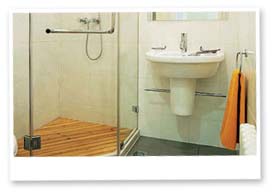 Water distribution pipes in bathrooms and toilets can cause water leaks.If there is a water leak and there is damage downstairs, you may be charged for the repair.
Water distribution pipes in bathrooms and toilets can cause water leaks.If there is a water leak and there is damage downstairs, you may be charged for the repair.
In the bathroom, remove the garbage frequently so as not to let your hair flow into the water pipe.
In the toilet, please do not flush anything other than toilet paper.Tissues and sanitary products do not dissolve in water, so they cannot be flushed to the toilet.
There are two types of toilets in Japan: Japanese style and Western style.
Use both cleanly.
How to use the veranda
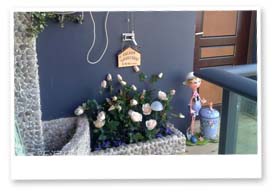 In many multi-family housing, the veranda is an emergency evacuation passage in the event of a disaster, so be careful not to block things on the escape exit on the veranda floor.
In many multi-family housing, the veranda is an emergency evacuation passage in the event of a disaster, so be careful not to block things on the escape exit on the veranda floor.
In addition, the thin partition that separates the veranda with the neighbor’s house will be broken down at the time of emergency evacuation and becomes a passage, so be careful not to interfere with the passage by placing things in front of the partition.
In Japan, most families hang out laundry and futons on the veranda.When using water on the veranda, such as watering plants, be careful not to drip water downstairs.
Especially if the residence is on the first or second floor, lock the window when you are away watching the intrusion of a suspicious person from the veranda.
How to use common areas
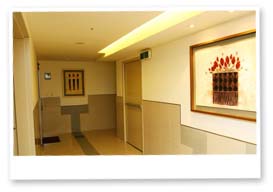 In multi-family housing, entrance halls, corridors, stairs, etc. are shared spaces for residents.In addition, in the event of an emergency such as a disaster, it can also be used as an evacuation passage, so it must be widely opened at all times.
In multi-family housing, entrance halls, corridors, stairs, etc. are shared spaces for residents.In addition, in the event of an emergency such as a disaster, it can also be used as an evacuation passage, so it must be widely opened at all times.
Don’t leave your personal luggage just because you have space.In addition to putting luggage, always use it cleanly so as not to throw away garbage etc.
Bicycle storage and parking
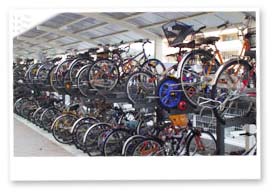 Bicycles are placed neatly in a fixed place, such as a bicycle parking lot.
Bicycles are placed neatly in a fixed place, such as a bicycle parking lot.
Don’t leave it on the road or sidewalk.
Cars are required to rent a parking lot.
Parking is available at an extra cost.Never park on the street or without permission.
Greeting
 Japan has long been a country that values rei.
Japan has long been a country that values rei.
It is important to do our best to thank your neighbors so that they can accept international students willingly.
When you move, be sure to say hello to your neighbors.
When moving to a single-family house, it has been customary for a long time in Japan to bring only the article of the heart to the house on both sides, downstairs, and the upstairs in the house opposite both sides of the moved house, and to say hello.
“Nice to meet you.My name is O who moved to me next door.I’m an international student at a university, and I’m from you.There are many things that I don’t know about life in Japan, so thank you.If you greet them with all your heart, your neighbors will welcome you even more warmly.
It is also good to get along with your neighbors and teach them a lot of things.
In addition, always do business with neighbors and residents in the same apartment house, such as “Good morning” and “Hello”.
In order to live a comfortable international student life in Japan, it is important to build warm relationships with local people.
First of all, let’s get into the habit of giving a pleasant greeting.
About the rest
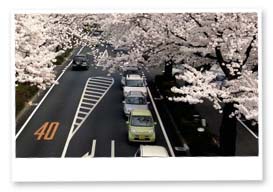 In Japan, schools and government offices are closed on Saturdays, Sundays, and public holidays in principle.
In Japan, schools and government offices are closed on Saturdays, Sundays, and public holidays in principle.
The same goes for financial institutions.
Since the holidays of medical institutions are now various, in case of sudden illness or injury, let’s check the examination date and the medical treatment time of the nearest hospital.
There are 15 days of holidays in Japan per year.
Lifestyle
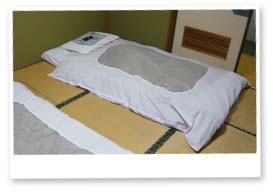 Originally, there was a culture of tatami mats in Japan, and Japanese people took off their shoes and sat on tatami mats.As life became Western style and chair culture expanded, the number of Japanese-style rooms with tatami mats decreased, but even now, they still take off their shoes in the room.
Originally, there was a culture of tatami mats in Japan, and Japanese people took off their shoes and sat on tatami mats.As life became Western style and chair culture expanded, the number of Japanese-style rooms with tatami mats decreased, but even now, they still take off their shoes in the room.
In the room, indoor shoes such as slippers are often used, but when it goes up to the tatami mat, it does not wear anything.
Tatami mats are softer and more vulnerable than wooden floors.
In a tatami room, take off your indoors and stop using chairs.
The traditional Japanese bedding “futon” is used directly on tatami mats.Unlike the bed, it folds every day and puts it in the closet.In order to get damp, dry it on sunny days and apply it to sunlight.



